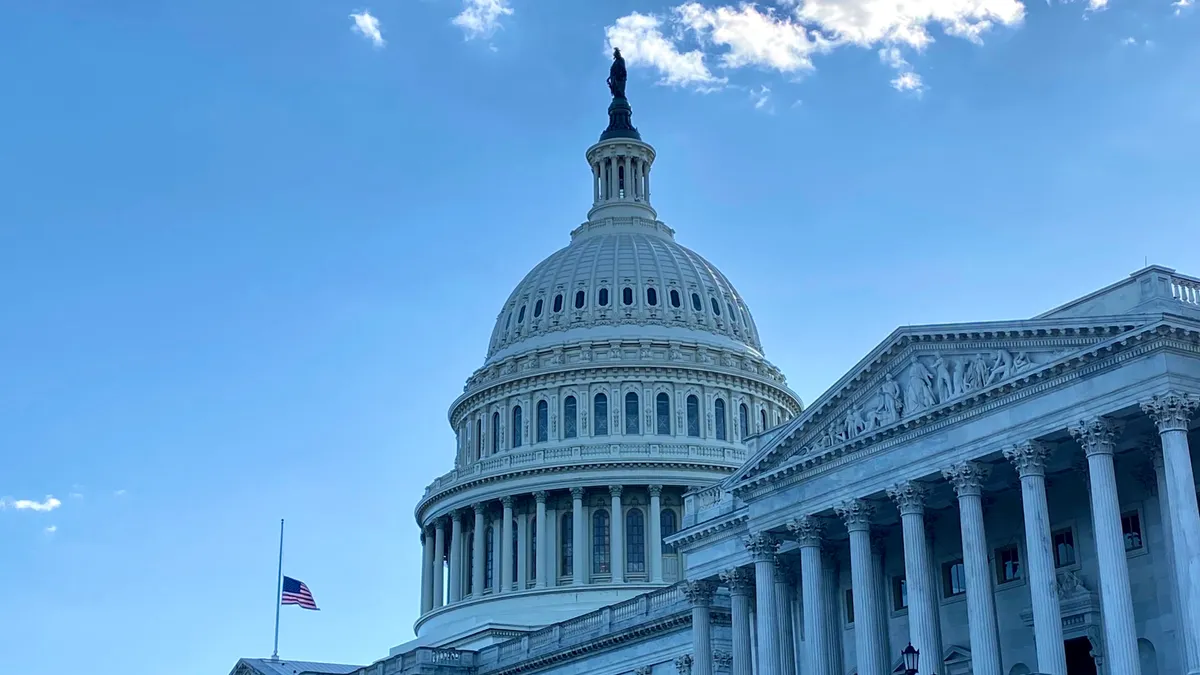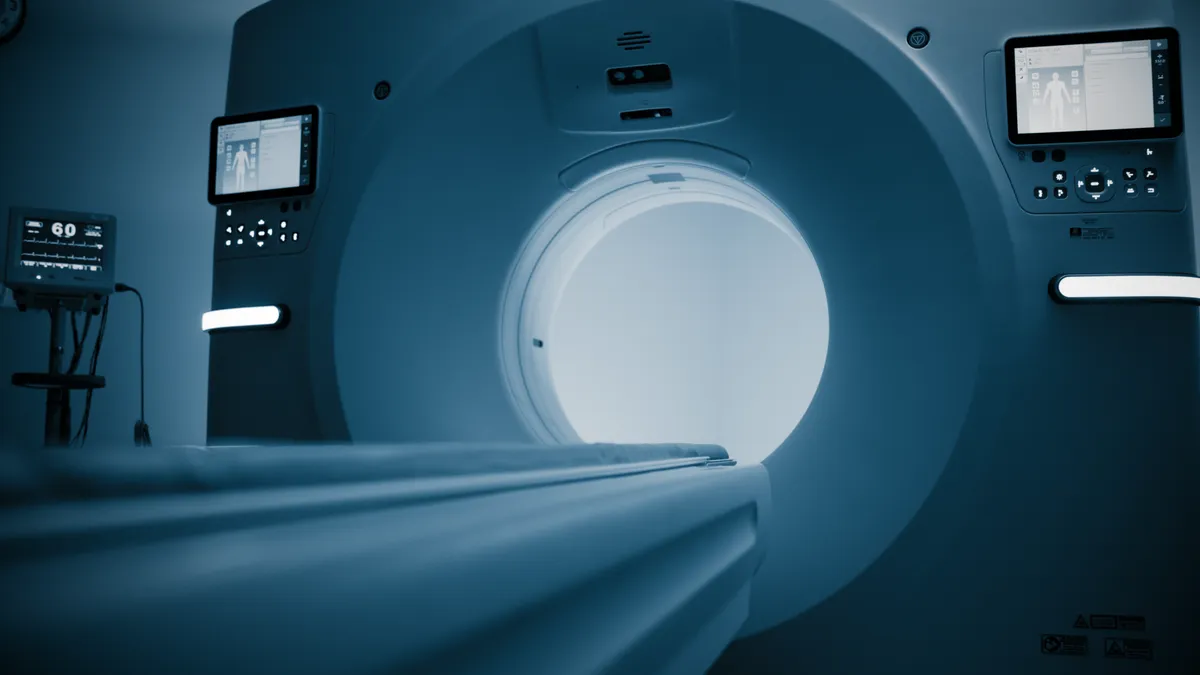The Energy and Commerce Committee voted unanimously on Wednesday to send a bill to the House that would reauthorize the Food and Drug Administration’s user-fee amendments for the next five years.
The bill contains several additions, including requirements around clinical trial diversity and medical device cybersecurity. It also includes reforms that would let the FDA require drug sponsors to start phase IV trials before granting accelerated approval and would expand the agency’s hiring authority, allowing it to staff centers that oversee food and infant formula, for example.
“This authority is clearly needed, after we've seen the FDA’s challenges in its food and infant formula division,” said House Subcommittee on Health Chair Anna Eshoo, D- Calif., referring to the ongoing baby formula shortage.
Some legislators brought up a Senate discussion draft of the user-fee amendments, released a day earlier, that would overhaul how diagnostics are regulated, including laboratory-developed tests.
Rep. Diana DeGette, D-Colo., who sponsored the legislation that was incorporated into the Senate draft, had considered including it as an amendment to the House bill.
“But we would prefer to really work with our staff, and with you, Mr. Chairman, as this [Verifying Accurate Leading-edge IVCT Development (VALID) Act] moves through the Senate process, to make sure as we move forward, that we put this important regulation of diagnostic testing into the bill,” DeGette said to House Energy and Commerce Chair Frank Pallone, D-N.J.
“Whenever the Senate takes action on anything we have to take notice, because you know, it's very difficult for them to take action,” Pallone responded.
Rep. Larry Bucshon, R-Ind., who co-sponsored the bill with DeGette, said he was disappointed that the testing reforms were not included in the House version of the bill but also hoped that the committee “grabs a seat at the table” as the process continues with the Senate.
The Senate version
The Senate Health, Education, Labor and Pensions (HELP) Committee shared its version of the bill in a discussion draft on Tuesday. It has a “very different – but potentially complementary – list of add-ons beyond the core funding agreements compared to the version moving in the House,” Cowen analysts wrote in a research note on Tuesday.
The three major additions to the bill would expand the FDA’s regulatory authority around cosmetics and supplements and would revamp how diagnostics are regulated.
“Each of the three areas has also been the focus of longstanding attention from legislators eager to beef up FDA’s regulatory authorities – and equally longstanding resistance from the affected sectors and their allies eager to maintain a less regulated model,” the Cowen analysts added.
The diagnostics segment, which makes up the largest portion of the draft, includes the VALID Act, which would clarify the FDA’s regulatory oversight of lab-developed tests. The VALID Act was first proposed five years ago, around the last user-fee reauthorization process, and reintroduced last summer by Reps. DeGette and Bucshon.
In the past, the FDA hasn't required premarket review for lab-developed tests, which are designed, manufactured and used in one laboratory. This practice has come under scrutiny as companies have used this loophole, including the example of defunct blood testing startup Theranos. More recently, a back-and-forth between the Trump and Biden administrations on whether the FDA can require review of these tests drew further attention to the issue.
The Senate markup would create a new, risk-based framework for regulating diagnostic tests, including lab-developed tests. It would create a new category, called in-vitro clinical tests, that would require premarket approval from the FDA unless a test meets certain exemptions. For example, low-risk and low-volume tests, as well as tests offered for clinical use before the legislation is enacted, would be exempt.
The draft bill also defines criteria for what constitutes a high-risk, moderate-risk or a low-risk test, differentiating diagnostics from the FDA’s risk classification system for devices. While high-risk tests would require premarket review, developers of moderate-risk tests could file for abbreviated premarket approval.
The Pew Charitable Trusts recently published a fact sheet supporting stronger FDA oversight of diagnostics, noting that in a survey of 808 adults, almost 10% who had gotten a test said they received an inaccurate result. The organization said on Tuesday it was still reviewing the discussion draft.
The American Clinical Laboratory Association, a trade association representing clinical laboratories, also said it was reviewing the legislation.
“ACLA remains focused on ensuring that the new regulatory paradigm would fully recognize the critical role of clinical laboratories in public health and patient health, preserve and foster innovation in clinical laboratories, while maintaining access to empower providers and patients in health care decisions,” the association said in a statement on Tuesday.
There’s still a lengthy process ahead for the proposal to make it into the final bill. The Senate HELP Committee is taking feedback on the discussion draft through May 22, and plans to mark up a final version of the bill in the coming weeks. There’s also the matter of how it will fit together with the House version of the bill.
“There is little overlap in the add-on provisions but also no obvious points of disagreement, meaning the two bills could be merged easily – if the Senate’s more ambitious provisions don’t end up derailing the process altogether,” Cowen analysts wrote.





















